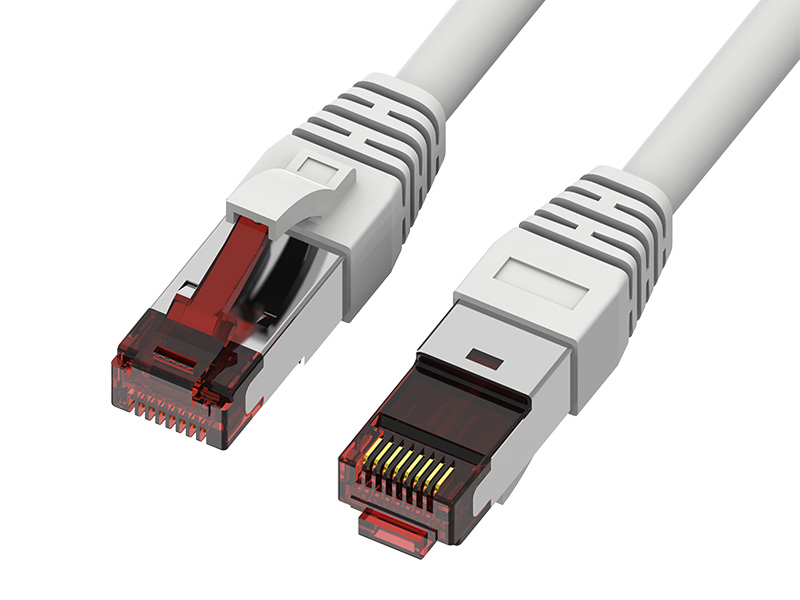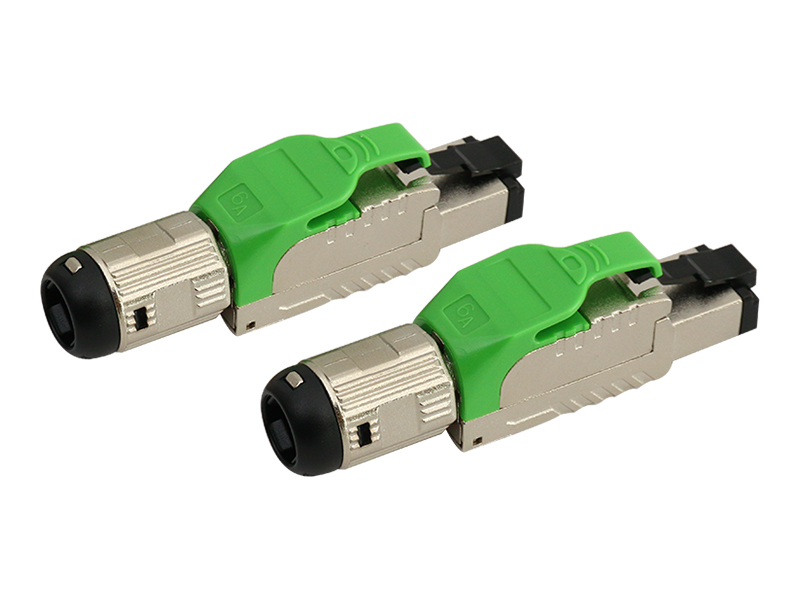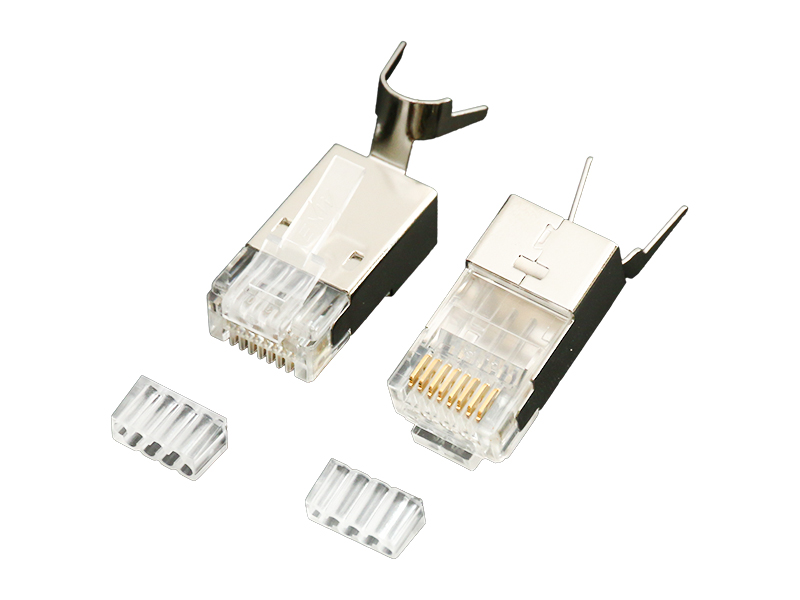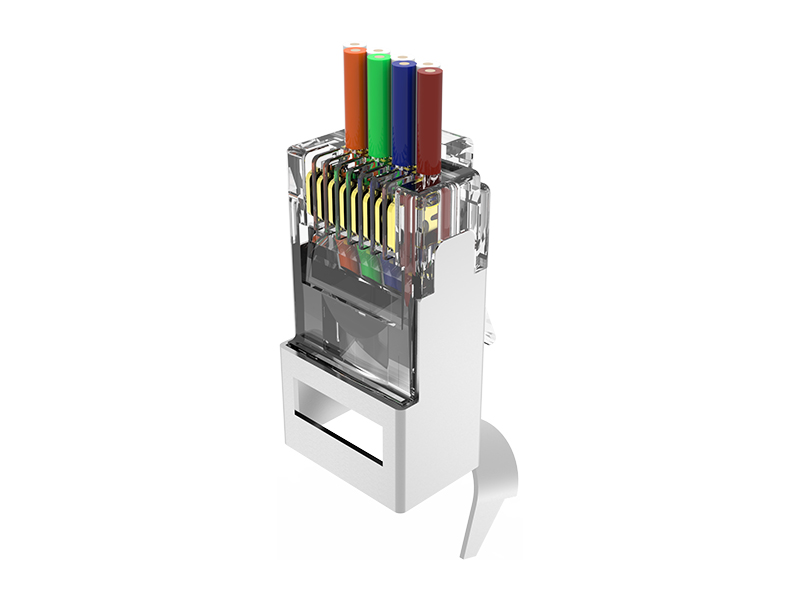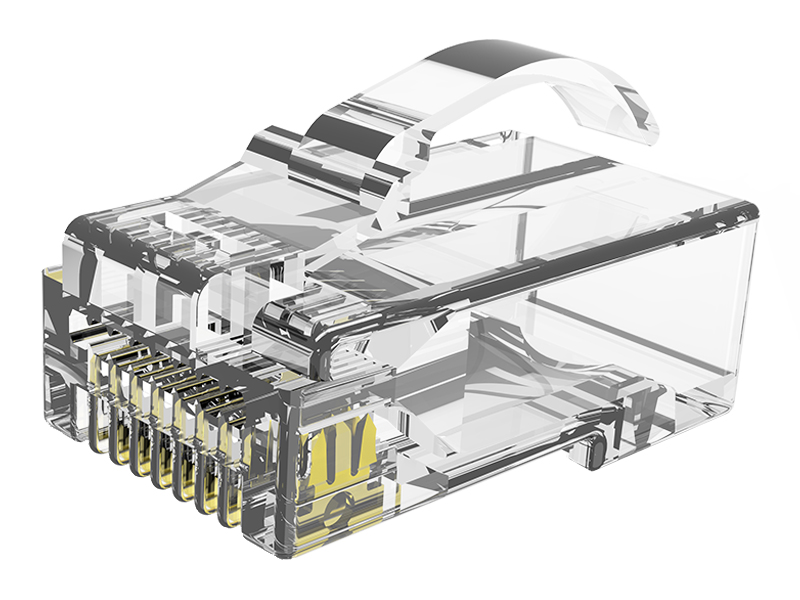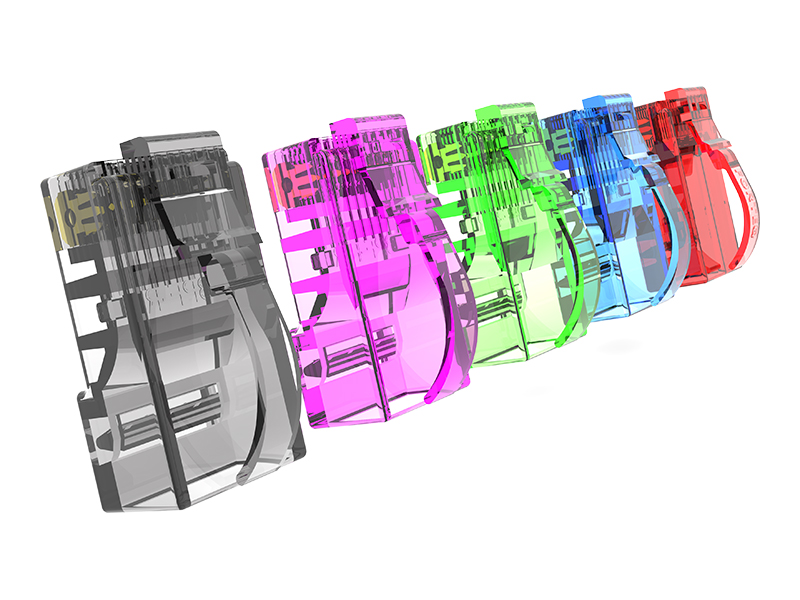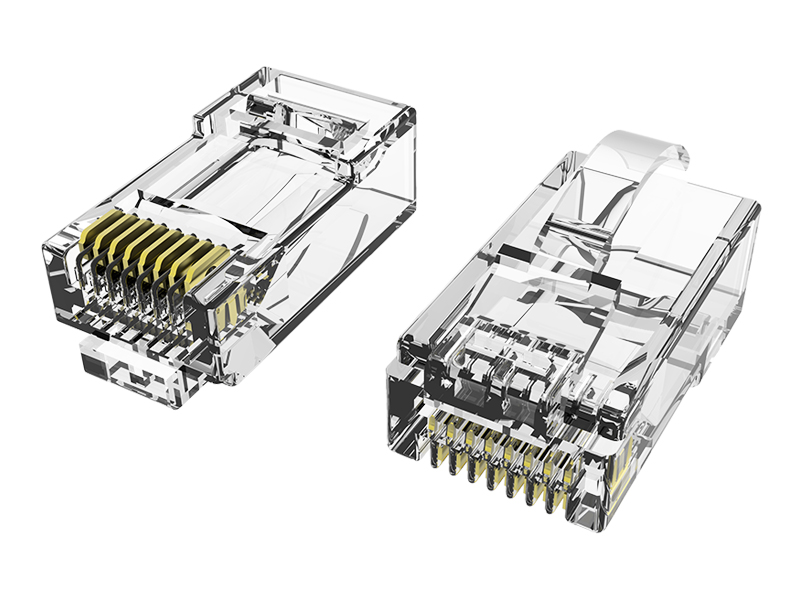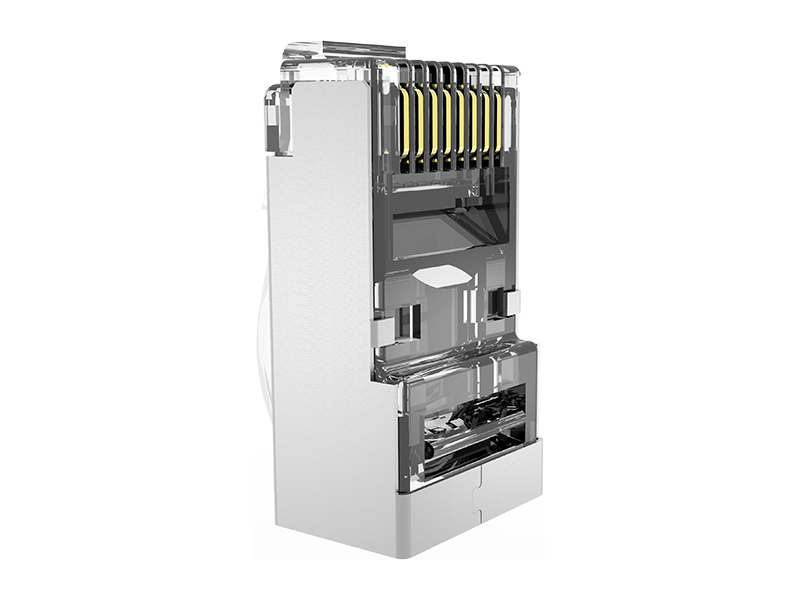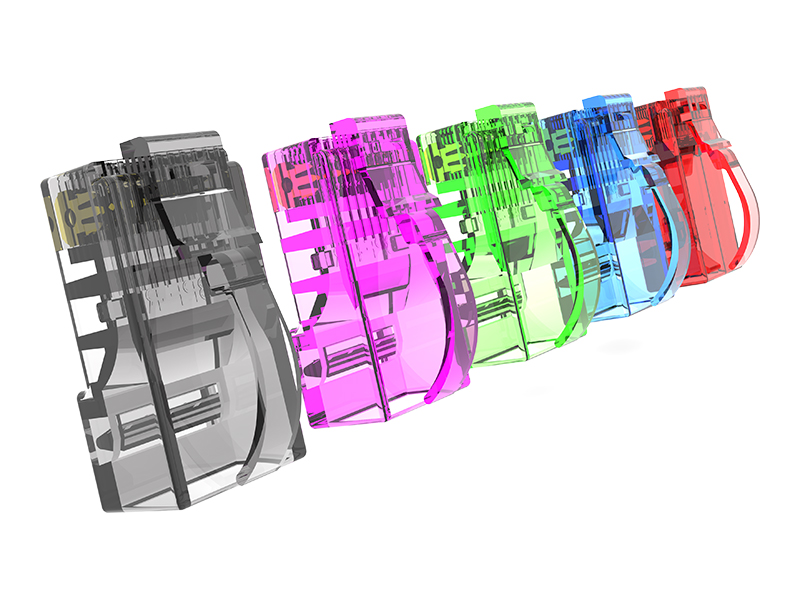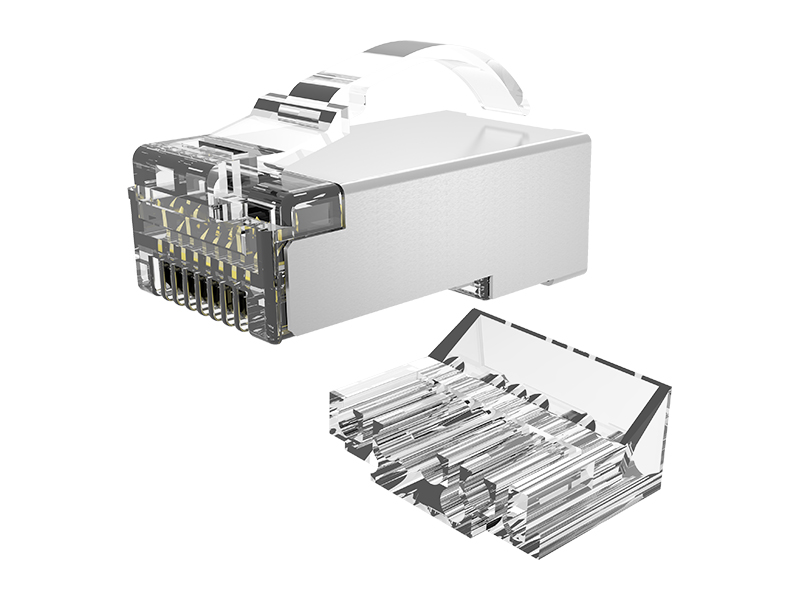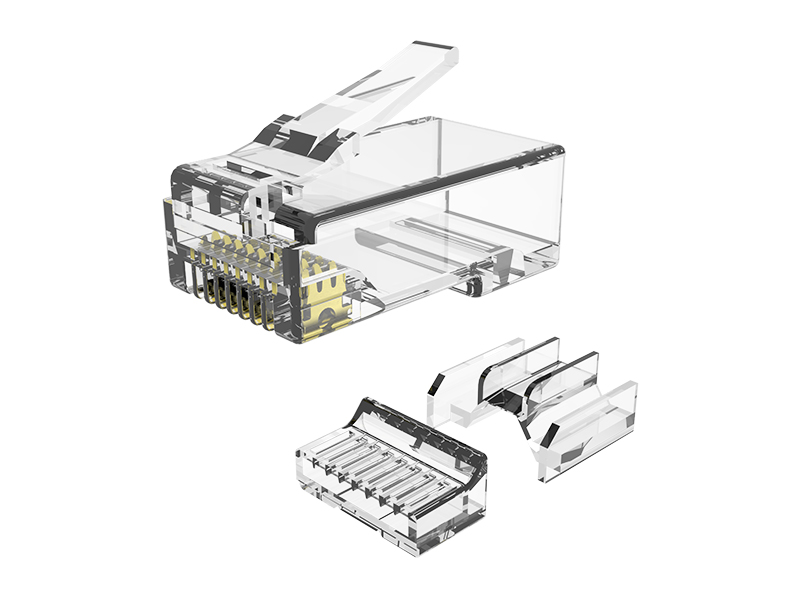Unshielded Cat.5e Arch Latch Modular Plug
Content
1. Core Design Purpose
Secure Physical Retention: Features an arched latch (raised, ribbed tab) for high-tension grip, preventing accidental unplugging in vibration-prone areas (e.g., under desks, workshop floors).
Basic Performance: Supports 1Gbps Ethernet for office/light industrial use where EMI is minimal.
2. Key Physical Features
Reinforced Latch:
Thickened arch design resists snapping when snagged by feet, carts, or equipment.
Strain Relief:
Internal ramps grip cable jacket (no Kevlar needed), surviving 50+ lbs pull force.
Tool-Less Simplicity:
No clips or screws—latch releases by thumb press at 45° angle.
3. Termination Process
Strip & Align:
Remove ½" jacket; arrange wires in T568B order (no untwisting >13mm).
Slide & Seat:
Push wires into plug until tips hit front wall.
Crimp:
Squeeze with standard crimper; latch auto-deploys post-compression.
4. Target Applications
Retail POS Systems:
Secures cables kicked by customers under counters.
Education Labs:
Withstands chair legs rolling over cords.
Light Industrial:
Conveyor side stations with low vibration.
5. Failure Scenarios & Fixes
| Issue | Cause | Survival Fix |
|---|---|---|
| Latch Snaps | Vertical yank (not angled press) | Pry release with flathead screwdriver |
| Intermittent Signal | Wires retracted during crimping | Slice plug; re-terminate |
| Plug Ejection | Latch worn smooth from debris | Wrap electrical tape as temp lock |
6. Limitations
No Shielding: Fails near motors, microwaves, or high-voltage lines.
Cat.5e Only: Not for 10Gbps upgrades.
Reusability: Latch weakens after 5+ removals; replace if loose.
7. Vs. Standard Cat.5e Plug
| Scenario | Arch Latch Plug | Standard Plug |
|---|---|---|
| Kick/Pull Test | Holds at 50N force | Pops out at 20N |
| Blind Installation | Latch clicks audibly when seated | No feedback |
| Cable Tension | Redirects stress to housing | Stresses wire contacts |
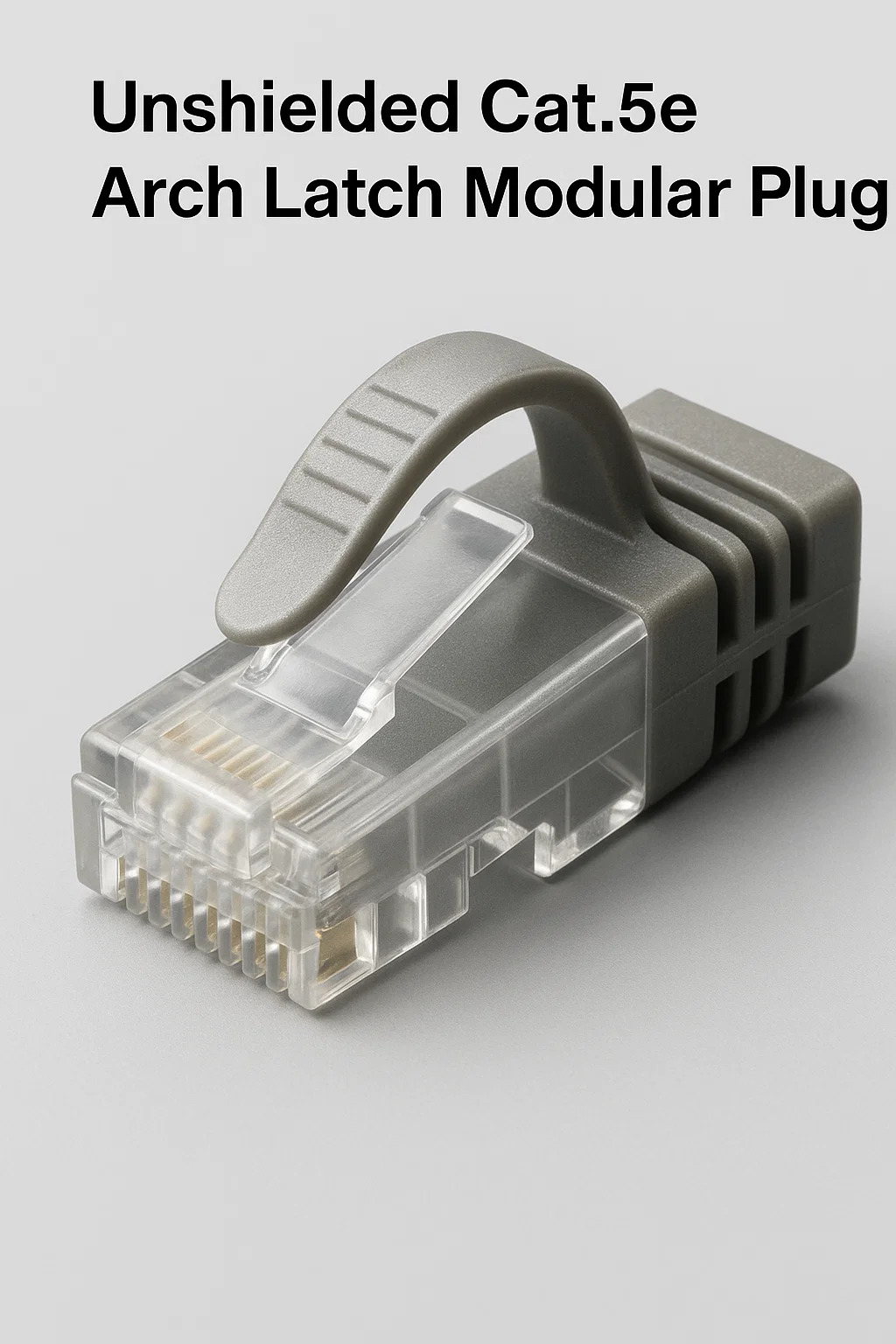



 中文简体
中文简体 English
English Français
Français Deutsch
Deutsch عربى
عربى

